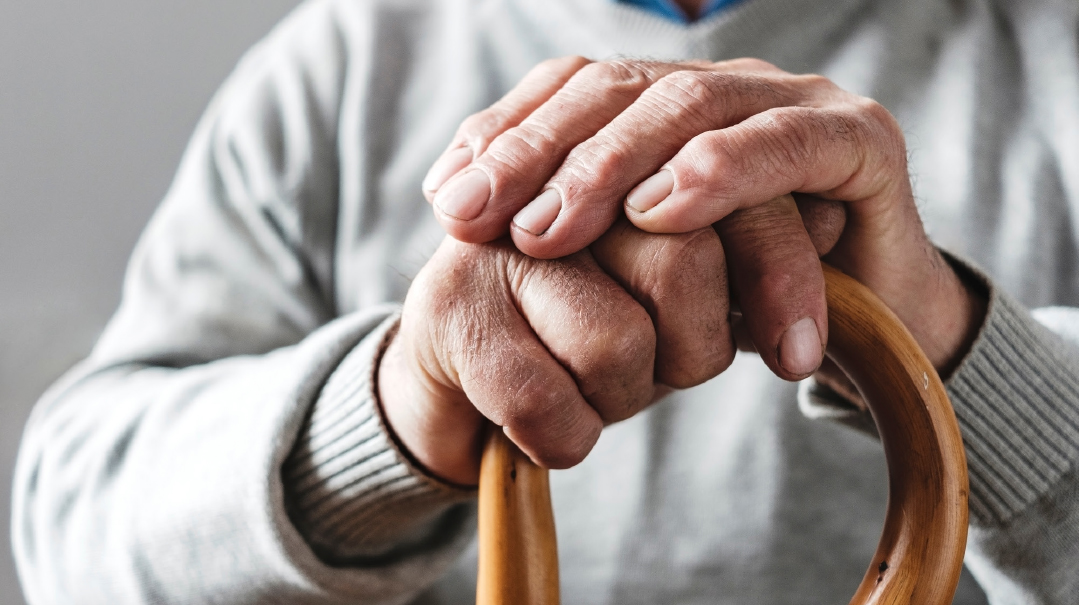Unhealthy Lapses

Concerns about Biden’s cognitive decline should be of utmost importance, but does it have to come in a package of degrading human dignity?

I loved my grandfather very much. Zaida Harry lived into his nineties — like all good Jews, he had some shenanigans with his documents, so no one really knew his true age.
For old-time Torontonians, Harry P. Botnick was a legendary figure — though few knew that the P stood for Pinchas. He was a brilliant attorney and bona fide Galicianer. It wasn’t worth starting up with him — whether in English or Yiddish, he had the perfect one-line zinger in response.
Which is why it was so sad when Zaida began to forget. I’d regularly take him to the Viewmount Shul — of which he was president emeritus — for Minchah and Maariv, an experience that became progressively disheartening. He didn’t always recall my name. Sometimes he’d forget what day it was, or get confused as to which tefillah he was supposed to be davening.
Painful, isn’t it?
But here’s the good news. What did not happen is the Toronto Star plastering a picture of Zaida, looking thoroughly uncertain, along with jeering headlines mocking his latest blunder.
A review of the local TV stations revealed that they, too, neglected to air this story. Come to think of it, I don’t recall news outlets ever taking to the front covers to ridicule an elderly individual for undergoing a condition that is entirely out of his control.
And that is probably based on a simple policy: We don’t make fun of old people.
It isn’t nice.
To criticize the elderly for their age is no different than criticizing the disabled for their handicaps.
Decent people don’t do that.
Right? Right.
Uh, maybe.
We’ve all seen the jabs made by every major news outlet in recent weeks, the way they minced no words in their coverage of the president’s performance at the recent debate.
We’ve watched replays of the cringiest moments and some of those memes circling are takke very funny.
But here’s the thing. They may be humorous, they may be sharp, they may reassure our political convictions.
But they’re vicious. They’re wrong. It’s that simple. To clarify: You may harbor a strong dislike of President Biden and that could be well-justified. You have every right to take to social media, or, for a more effective response, the 15-minute break between Minchah and Maariv, to vent your heart out. You can lambaste him for his policies on Israel or Ukraine, decry the damage he has wrought upon the economy, or condemn the erosion of the southern border that has transpired under his watch.
But don’t make fun of his age. That’s wrong.
Another clarification: Concern about President Biden’s cognitive decline is something to be taken seriously, and has in fact been raised in the pages of this magazine. As the nation’s leader, his ability to function is of utmost importance in terms of qualifications for the highest office in the land. But there are ways to discuss that without desecrating a human being’s dignity. Have the conversation. Raise the questions and concerns.
But don’t make fun. Don’t mimic. Don’t pass around videos showcasing his every slip.
Don’t do what you would consider horrifying if it were done to your own grandfather.
By now you have probably seen the Economist’s front cover, featuring a walker festooned with the American presidential seal and the words, “No Way to Run a Country” printed alongside it.
The headline crosses a red line, as does the image of a walker. (It’s annoying that “headline” and “red line” rhyme, because that makes for such an awkward sentence but you get the point.) Like him or not, he’s a human being. Treat him as such.
I don’t know the folks at the Economist, but one thing I’m pretty sure of is that each morning, they don’t declare the brachah “shelo asani goy.” They also don’t recite birchos haTorah, praising He who was “bachar banu mikol ha’amim — chosen us from all other nations.”
It’s not the Economist’s mission to rise above that which all others do.
But it’s ours.
And here’s what we, as the am hanivchar, know about the Torah’s sensitivities to those who suffer from memory loss.
In the Aron, the holy arc serving as the epicenter of spirituality in this world, there are a few select items. There’s the sefer Torah written by Moshe Rabbeinu, and there’s the set of the second Luchos.
And then there are shards of… what? These glimmering pieces of sapphire may not be recognizable, but they are none other than the shattered remains of the first set of Luchos — “Luchos v’shivrei luchos munachin b’Aron,” says the Gemara in Berachos (8b), “the Luchos and the broken Luchos are placed in the Aron.”
And this, the Gemara explains, is to teach us to adhere to the honor deserving of a zakein sheshachach talmudo machmas onso — a talmid chacam who forgot his Torah through no fault of his own.
The Torah directs that this message eternally emanates from the Aron Kodesh itself, the very focal point of spirituality. Perhaps this is because respecting a talmid chacham who has forgotten his Torah is an expression of derech eretz, which, as we know, is kadmah laTorah.
If one were to criticize the luchos rishonos, he can forget about the luchos sheniyos. There’s no place in the Torah for such lack of sensitivity.
President Biden is no talmid chacham and is certainly not what the Gemara is referring to when they cautioned against demeaning a “zakein sheshachach talmudo.”
But the underlying principle is applicable nonetheless. A human being is a tzelem Elokim and degrading him because of the unfortunate decline in his cognitive abilities goes against all that the Torah stands for.
In a moment of great honesty, I actually find myself admitting that were I on that stage, I would have had far more embarrassing lapses, like a random rant about how the oilam, after all these years, still doesn’t chap the full gadlus of Abie Rotenberg’s “Joe DiMaggio’s Card.” (And the comeback would be subject to yeshivah-style meditation. There’d be pacing, air-beard scratching, leaning my back against the wall and shuckeling vigorously, coming one centimeter within knocking myself out cold.)
So let’s get real (c’mon, man!). No one remembers everything. No one except for Him — the Zocher Kol Hanishkachos.
And ultimately it is He, and no one else, Who will determine the outcome in November.
And that is something we should never forget.
Shmuel Botnick is a contributing editor of Mishpacha magazine.
(Originally featured in Mishpacha, Issue 1019)
Oops! We could not locate your form.







